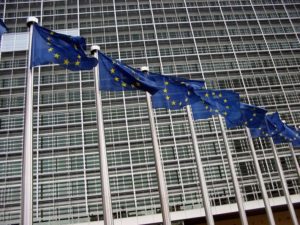
The European Union’s Africa Renewable Energy Initiative recently announced 14 new renewable energy projects across the continent, representing 1.7GW, with a total potential investment of almost €4 billion (US$4.2 billion).
Making the announcement in Conakry, Guinea, Commissioner for International Cooperation and Development, Neven Mimica, said, “With these 14 new projects, potentially worth up to €4 billion of investments, the EU is delivering on its promises.
“We are turning our pledges into real projects with true impact on the ground. The EU hereby reaffirms its leading role in supporting the African continent in the promotion of renewable energies for the improvement of energy access for African citizens.”
PVTECH reported that, Ségolène Royal, President of COP 21 and France’s Minister of Environment, Energy and the Sea, said, invitations to tender for the projects will be issued in the coming weeks. These projects are to be mobilized in record time under the €256 million in grants from the European Commission.
Among projects that include rural electrification, geothermal and grid upgrades, Royal revealed many large-scale solar projects are to be implemented.
This includes a 25MW solar plant planned for Benin, a 13MW and a 30MW solar power station in Niger, the 30MW Djermaya solar power station in Chad and a 100MW solar power plant in Nigeria known as the Bauchi solar project.
These solar projects and the other renewable energy ventures under the investment will contribute to the EC’s aim to give 30 million more people access to sustainable energy and help generate 5GW of new clean energy in Africa by 2020.
This represents half of the Africa Renewable Energy Initiative‘s overall target, as one of the initiative’s key objectives is to generate 10GW of new renewable energy in Africa by 2020, and to unlock Africa’s potential to generate as much as 300GW from renewable energy by 2030.
The EU’s development funding towards sustainable energy in Sub-Saharan Africa for the period 2014-2020 amounts to approximately €2.7 billion.